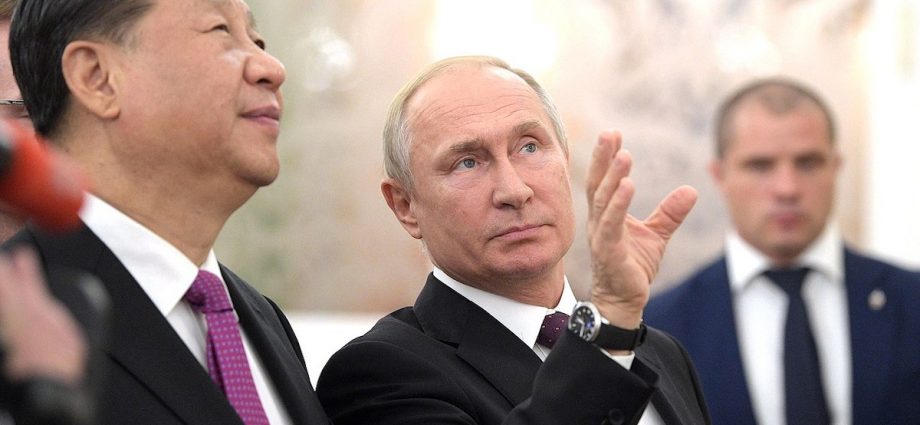Opening on October 16, 2022, China’s 20th National Congress of the Chinese Communist Party is virtually certain to see general secretary Xi Jinping confirmed as China’s top leader for a third term. This will mark yet another step in China’s steady slide towards a more personalist regime centered on a single individual.
In the near term, this will increasingly saddle Beijing with all the governance weaknesses associated with single-man rule. In the long term, it will make China’s domestic politics more unstable and increase the risk of Beijing’s policies veering dramatically based on the whims of the top leader and his close associates.
Since his rise to power in 2012, Xi has pursued a consistent set of domestic policies — tighten the Party’s grip over state and society alike, strengthen Beijing’s hold over economic elites, forcefully assimilate minority populations, wipe out dissent, and harden the system against ideological infiltration, particularly from the West.
All of these have a single consistent thread — to strengthen the power of the Chinese Communist Party, which Xi views as having been undermined over the course of the post-1978 reform era, and avoid the fate of the Soviet Union under former general secretary Mikhail Gorbachev.
Increasing Xi’s personal control has been core to this process. The purge of rivals such as Bo Xilai and Zhou Yongkang, the steady elevation of Xi himself in China’s ideological pantheon, propaganda efforts to cultivate a cult of personality around himself, the refusal to designate a political successor at the 2017 Party Congress and now his steady march towards extended (and perhaps lifetime) rule — all of these reflect a one-party system that is sliding in the direction of a personalist regime.

On the surface, this looks strong. But it is actually a recipe for massive problems. Indeed, by steering China back towards a system of one-man rule, echoing that of Maoist China or Russia under President Vladimir Putin, Xi risks replicating all of their governance failures as well.
As a political system deteriorates towards personalist rule, decision-making erodes and yes-men proliferate. Aides hesitate to report bad news and the supreme leader starts believing his own propaganda about his infallible wisdom and ultimate power. Previously, he merely sought to avoid stepping down.
Now, having cultivated a cult of personality, he never wants to back down for fear of appearing weak. That is not only how Putin first came to invade Ukraine, but why he is now doubling down on a war that could quite likely wreck his regime and Russia’s future.
China is not at that level of political deterioration yet. But Putin has had a quarter of a century to deform Russian politics to his will. Xi has only been at the top for a decade. But in Beijing’s stubborn unwillingness to modify or question Xi’s zero-Covid policies, even at the cost of massive domestic economic damage, one can already see the outlines of a similar dynamic at work.
Political decay into personalist rule has a second effect as well. Court politics multiply and infect the day-to-day operations of the bureaucracy. Officials start to rapidly fall in and out of favor with the paranoid, declining monarch. State policies begin to careen wildly as aides pander to his whims and smear their rivals.
The United States experienced its own strain of this virus under Trump. China’s variant in the 1960s and 1970s under former chairman Mao Zedong was far more lethal.
Mao’s first two designated political successors experienced gruesome deaths — the first expiring as a result of medical neglect on the cold floor of a prison cell after repeated abuse at the hands of radical Red Guards.
The second perished in a mysterious plane crash after allegedly attempting a coup and trying to flee to the Soviet Union. This is what happens when China’s elite politics devolve into blood sport.

That changed with the birth of the reform era. Deng Xiaoping edged former chairman Hua Guofeng out of power in the early 1980s. Reform-minded general secretary Zhao Ziyang was purged after the bloody suppression of the 1989 pro-democracy protests, and placed under house arrest for the rest of his life. But neither was killed.
But as China deteriorates politically, such practices are eroding. Xi’s purge of former security czar Zhou Yongkang, and his 2015 sentence to life in prison, marked the first time a former or current member of the Politburo Standing Committee had been sentenced on corruption charges.
Rooting out elite “political cliques” aimed at challenging the top leader is back in fashion — as reflected in the suspended death sentence handed down to former deputy public security minister Sun Lijun on September 23, 2022.
Such measures are clear warnings to Party cadres in the lead-up to the 20th National Party Congress that any rivals to China’s top leader no longer risk merely their careers, but quite possibly their lives. Continue down this path and elite Chinese politics could steadily regress to a far more lethal era.
Strategically, Xi may be seeking to avoid the fate of the Soviet Union under Gorbachev. But the tactics he is adopting may result — whether intentionally or not — in repeating that of China under Mao, or Russia under Putin.
Carl Minzner is Senior Fellow for China Studies at the Council on Foreign Relations, and Professor at Fordham Law School, specializing in Chinese politics and law. He is the author of End of an Era: How China’s Authoritarian Revival is Undermining Its Rise (Oxford University Press, 2018)
This article was first published by East Asia Forum, which is based out of the Crawford School of Public Policy within the College of Asia and the Pacific at the Australian National University. It is republished under a Creative Commons license.

